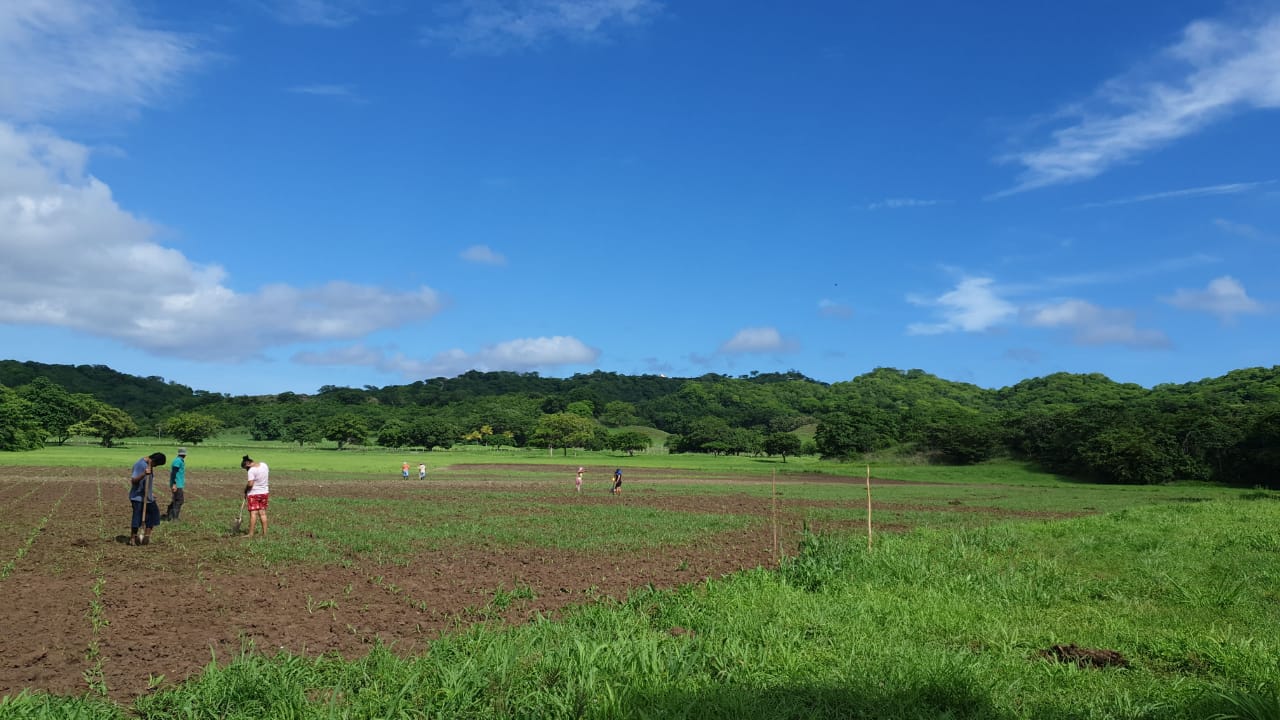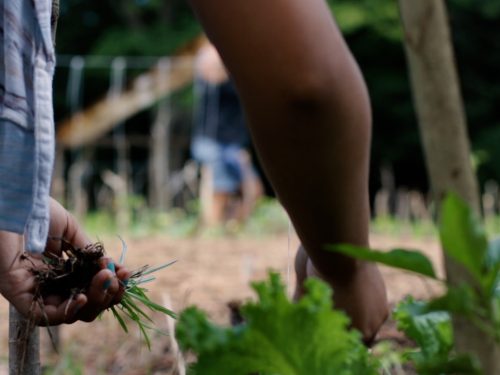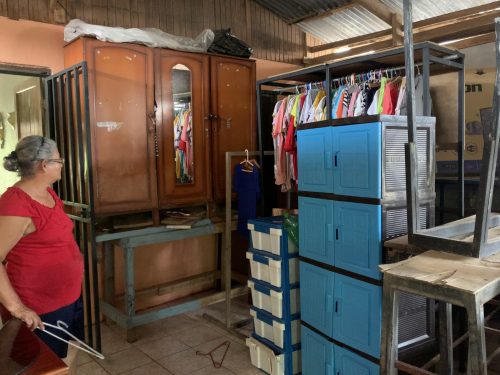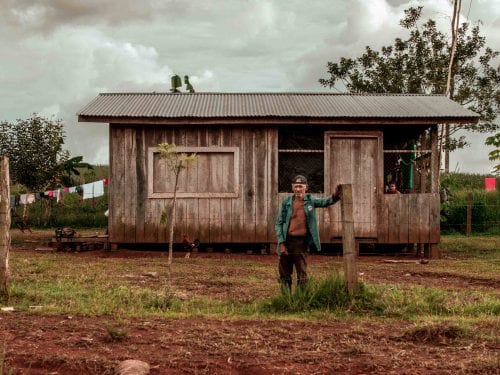
Diego Gutiérrez did not think twice when in June he was invited to participate in the development of a communal orchard in his town, Matapalo of Santa Cruz. In early 2020, he was working as a receptionist at a hotel near Playa Grande, but since March he has been unemployed due to the impact of the pandemic on tourism.
Diego is part of the more than 42,000 unemployed people in the Chorotega Region, according to data for the second quarter of 2020 from the Continuous Employment Survey of the National Institute of Statistics and Censuses (INEC). This is 17,000 more people compared to the data for the first quarter.
He and his wife have managed in the last five months to survive: sometimes he goes out to sell tangerines from a tree that he has at home, and his wife started a project of artisan soaps made from goat’s milk. They also stock up with hens, chickens, ducks and some crops of corn and squash.
We have always had food in the house because the winter has been good, it has given us grass and the crops have developed well, not much but for three people (he, his wife and son) we eat well,” he adds.
According to the idea that they presented to Diego, the orchard would serve for his family and 14 other families in the community to harvest food for self-consumption or to sell amid the uncertainty due to COVID-19.
“It served me to have more income for the family. You know that what is food is the most important thing,” he says.
For the community
The idea for the garden was born in the Futuro Brillante Foundation, which organizes projects and invests in the development of the Cabo Velas district of Santa Cruz. For example, they offer English courses, computers, and environmental workshops. Its impact on the community also includes infrastructure works, such as playground arrangements, investment in dressing rooms and multipurpose courts.
“We had already had small community orchard projects and when the pandemic hit we began to think about how we can use our efforts and knowledge to do other projects,” says founder and director Lindsay Losasso.
Losasso had been recognized in the first edition of the Creators of Change Award, by La Voz de Guanacaste, in the category “No Guanacastecos for Guanacaste.” At that time she told La Voz that they usually support the foundation with the financial support of a group of Americans.
For this project they had help from the private sector. The company Garnier & Garnier Desarrollos Inmobiliarios loaned them a three-hectare area of land for a year so that the group of community volunteers could develop the orchard. Losasso hopes that the project can be extended for more than a year if it bears enough fruit to demonstrate its success.
The foundation visited the families in June to present the project and, on Monday, July 6, they met for the first time to sow. They currently have plantains, passion fruit, pipián, cucumber, corn and bananas, and they hope to have the first harvest in just over two months.
In a WhatsApp group, they coordinate the visits to the garden and the pending tasks they have to do. Every day, at least one person visits the orchard to fulfill the tasks that are required.
We work on the responsibility and commitment of each one. Right now we are going to clean up when we have time,” says Gutiérrez. According to him, the dynamic has been helpful because everyone brings different skills.
For example, he has a scholarship from the State Distance University (UNED) and is studying Agronomy. “A lot of water has fallen on the crops, the corn is beautiful, a worm fell on it a while ago but it is already under control,” he says, adding that his main focus is organic agriculture.
“We all have to share knowledge and in the end we all learn from everyone,” he adds. The 15 volunteer families provide the labor and the organization and the company provide inputs such as fertilizers.
Get hands dirty
Self-supply with orchards is a solution that institutions and experts have proposed in the midst of the pandemic.
The professor at the National Center for Agriculture of the National Learning Institute (INA), Eduardo Agüero, told Semanario Universidad that in recent weeks he has received requests for support to transform businesses and invest in agriculture.
“Tourism is in zero season, so some companies that have our student employees are reinventing the productive space of the orchard, expanding it to produce food, keeping employees and giving a little liquidity to local economies,” he said.
For Diego, the project will serve for self-consumption but also to boost the community’s economy. “The idea is that everything is fair, and that those of us who are without a job serve us from that production to eat at home,” he says. “And if we can sell, at least we will have a little income to pay the bills,” he adds.
According to Diego and Losasso, to continue successfully they would like to have a greater number of committed families, more equipment to work the land, an irrigation system and electricity for the pump that draws the water from the well. “At least to have a guarantee that families can help each other pay for water, electricity and other bills,” says Gutiérrez.
_____
If you want to contribute to the project, you can send your donations to the Futuro Brillante Foundation.
Fundación Futuro Brillante | Legal Identity Card 3-006-731214
Banco Nacional, account in dollars: IBAN CR93015119320020017346
Banco Nacional, account in colones: IBAN CR19015119320010063859
BCR, account in dollars: IBAN CR07015202001228548430
BCR, account in colones: IBAN CR94015202001228548513







Comments